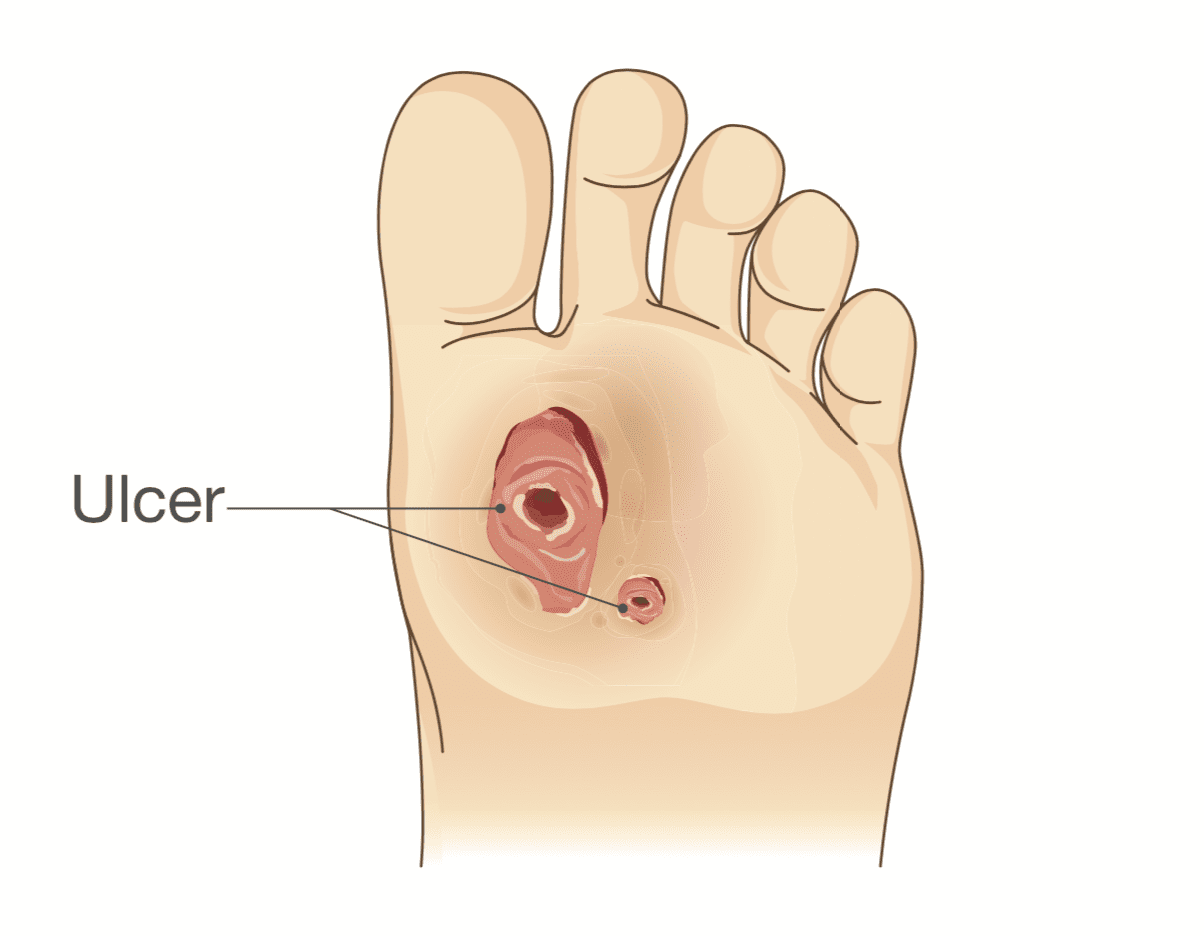It is easy to take your body’s amazing healing abilities for granted. However, there are times, as with a venous ulcer, when this process becomes interrupted. Call the office today to speak with a friendly team member or use the online booking tool to schedule your first appointment today.
Ulcer Q&A
What is an Ulcer?
An ulcer is an open sore that develops on the skin or mucous membranes inside the body. These sores can form as a result of tissue breakdown due to various causes such as poor blood circulation, prolonged pressure, infection, or the corrosive effects of stomach acid. Ulcers are commonly found on the skin, in the mouth, and within the gastrointestinal tract, particularly the stomach and intestines.
Ulcers can vary significantly in appearance and severity. While some are shallow and heal quickly with minimal care, others may become deep, infected wounds that require ongoing medical attention. When left untreated, certain ulcers can lead to complications such as infection, tissue damage, and in rare cases, systemic illness.
What are the symptoms of an ulcer?
The symptoms of ulcers depend largely on their location. Skin ulcers typically appear as open sores that may be red, swollen, and slow to heal. They can be painful, especially if infected, and may leak fluid or pus. In advanced cases, the surrounding tissue may turn black due to tissue death (necrosis).
Peptic ulcers often cause burning stomach pain, especially between meals or at night. Other symptoms include bloating, nausea, heartburn, and in severe cases, vomiting blood or passing black, tarry stools—both signs of internal bleeding. Mouth ulcers usually present as round or oval sores with a white or yellowish center and a red border. These can make eating, drinking, and speaking uncomfortable.
How is an ulcer treated?
Treatment for ulcers varies according to the type and severity of the ulcer. Skin ulcers require proper wound care to promote healing and prevent infection. This often involves cleaning the wound regularly, applying appropriate dressings, and using topical or oral antibiotics when needed. In more serious cases, surgical procedures such as debridement (removal of dead tissue) or skin grafts may be necessary.

